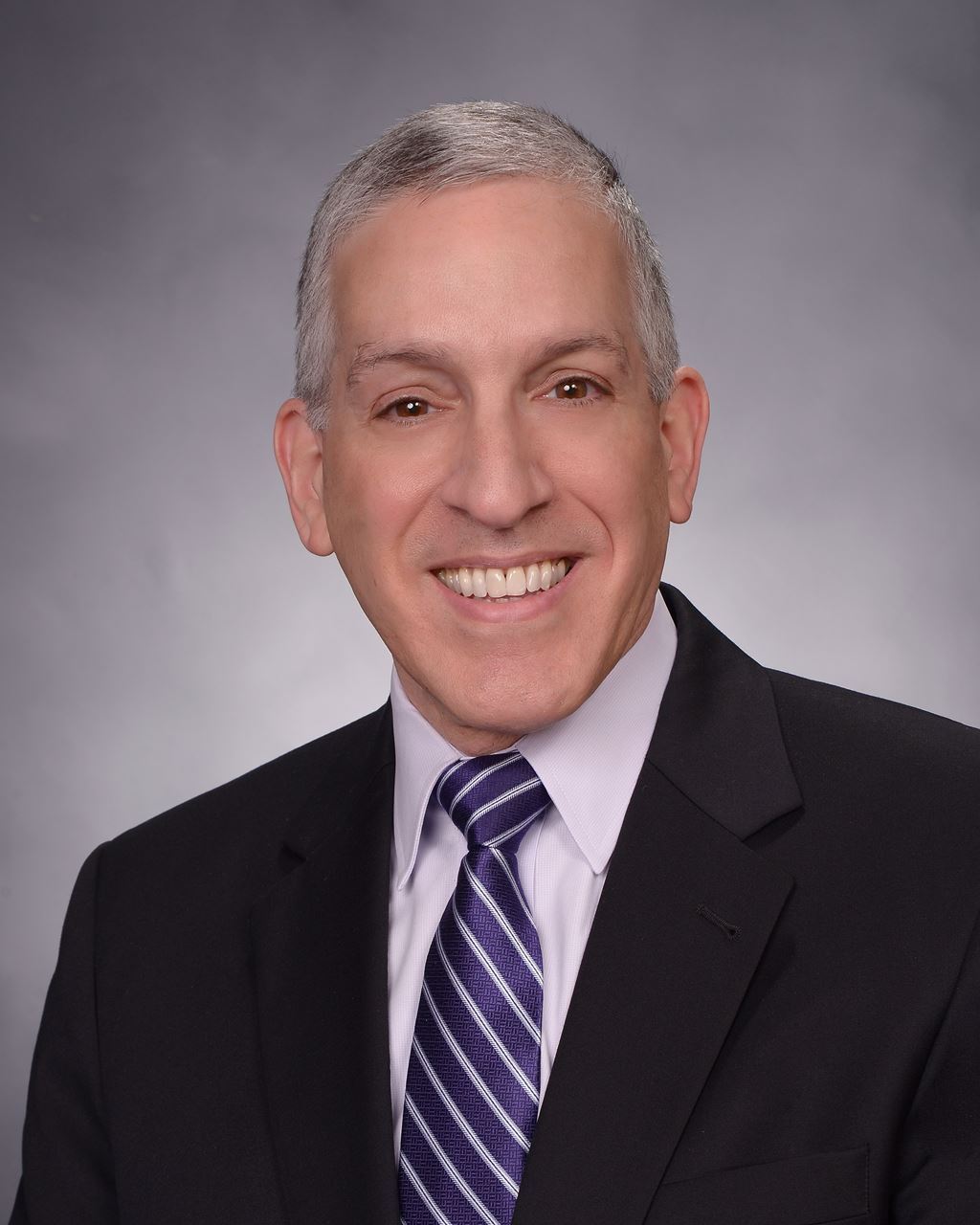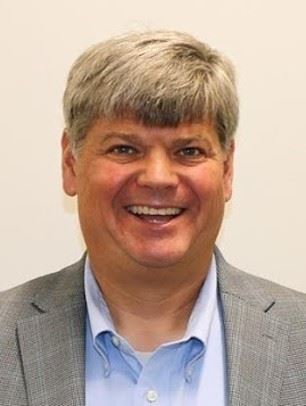Summer 2022 |
Letter from the Association Administrator The NAEF Board of Directors welcomes individuals who would like to serve the organization. Volunteers are currently needed on the Programs, Marketing, Membership, and Sponsorship Committees. EligibilityWe want volunteers who are hard-working, passionate, enthusiastic, and reliable. To be eligible, you must maintain an active NAEF membership. What is Expected of a Volunteer?Volunteers will be asked to participate in monthly 30-minute committee calls, bring forth ideas and suggestions, and assist with the implementation of action items. Volunteers – Committees
How to ApplySimply email me and be sure to include your preferred committee choice. If you're not sure of your preferred committee participation, call us at 410-527-0780. We will be happy to help match your skills and talents with the appropriate committee. |
A recent Seattle Times editorial, “School levies are a Band-Aid for stable, equitable K-12 funding” [Jan. 28, Opinion], highlights issues in Washington state regarding equitable funding of our public school system. The board’s opinion — that current levies on the ballot are subsidizing the failure of the state Legislature to uphold its own constitutional obligation to fully-fund public K-12 education — was insightful, giving attention to underfunding issues Washington has been struggling with for over 10 years. That said, there was one significant funding source omitted from the conversation: public school foundations. The many foundations found in districts across King County should be acknowledged when talking about the full funding picture of many public schools. In districts like Seattle, Issaquah, Everett, Edmonds, Mercer Island, Renton, Shoreline, Bainbridge, Lake Washington, Bellingham, Auburn, Edmonds, Northshore, and Bellevue, school foundations exist for the sole purpose of bridging a funding gap that exists in our public school system. Without foundation funding, students and educators could be left without the arts, computer science, early learning, teacher certifications and the opportunity to pilot innovative — and vital — new programs. The first foundation dedicated to supporting public K-12 initiatives in Washington state, the Bellevue Schools Foundation, has been an integral part of Bellevue schools’ innovation. Bellevue schools Deputy Superintendent Melissa deVita notes, “The Bellevue Schools Foundation not only provides funding to support innovation and new programs, much of which could not be pursued without their funding, but it also provides a strong link between the district and the community at large. There is something positive to be said about a community that voluntarily invests in our schools.” Since its inception, BSF has raised more than $37,000,000, providing myriad programs such as culturally-responsive literature libraries in classrooms, preschool tuition assistance, enhanced computer science curriculum and innovation grants, allowing teachers to spark creativity in learning within their individual classrooms. With the pandemic anxiety and interruption in learning, educational foundations in Washington have felt the funding crunch. Many donors could or would not continue donating because of economic hardship, frustration at the COVID-19 response and virtual learning environments, or other stressors. Yet BSF has been able to pivot nimbly, making significant, targeted donations to families in crisis, while continuing support for programming like districtwide mental-health support and suicide prevention, key to combating rising adolescent suicide rates. All sources of funding are imperative to students as the roles and responsibilities of schools and education change with the times. In addition to federal funding, and state and local levies, the role of school foundations must be acknowledged. With the challenges of the pandemic, the ubiquitous nature of technology, and the growing support students need to maintain well-being, entities like BSF have been imperative to the academic success of nearly 20,000 students. Until the Legislature can fully fund schools, levies and bonds will continuously need to be renewed to keep the schools standing and staffed. But even with these renewals, school foundations will continue to be called upon to bridge funding gaps, ensuring students receive the education they need — and deserve — to thrive. | About the Authors
Allison Witter Frey, Originally from San Francisco Bay Area, Allison was raised in a family philosophy that giving back to the community was paramount to being a good citizen. For the last 14 years, through her involvement with the Dean Witter Foundation, Allison has honored that family tradition by investing in nonprofits in California and her new home in Washington state. Allison serves as President of the Dean Witter Foundation and the Bellevue Schools Foundation, and holds various board and committee seats on local PTSAs, KEXP, and the Regional Olympic Board for NatureBridge. Now she is a freelance journalist and content strategist, and is slowly working on her first book, a collection of personal essays. Allison graduated from Boston College with a BA in Sociology and a minor in Woman’s Studies. She currently resides on the Eastside near Seattle, with her husband, Roger, and three kids.
Originally from Virginia, Juliet graduated from Duke University with a degree in Public Policy and went on to learn the art and science of fundraising at Equal Justice Works, a legal nonprofit in Washington, D.C. After earning her Master’s in Social Work, Juliet devoted her career to developing strategic partnerships for public, private, and community-based organizations committed to closing the opportunity gap. She has had roles of increasing responsibility at nonprofits in Washington, D.C. and New York City, including Thurgood Marshall Academy Public Charter High School, Ethical Culture Fieldston School, Oliver Scholars, and Abaarso Network. Juliet’s leadership of the Bellevue Schools Foundation harnesses private support to secure a world-class education for all students in Bellevue’s public schools, regardless of socioeconomic status. |
About the Author
Lance Swanson | Small Legacies I had the pleasure to attend the NAEF (National Association of Education Foundations) National Conference thanks to Zoom and the SOCIO app. This certainly wasn’t the first conference I have attended online, but I think it was the best virtual conference experience I’ve had. I think this was due to the many hours of work and planning that went into making it happen. I was so proud to see many of the planners and presenters were from Nebraska and members of our very own NAPSF. The work that NAEF has been doing over the last couple years to re-establish and create a sustainable model has certainly been worth the work. A special congratulations goes to Traci Skalberg on assuming the Chair and the same to Toba Cohen-Dunning as she moves to Past Chair. The success of NAPSF is in large part due to the hard work of these individuals. I personally know they are always willing to help and no matter the question, they take time to respond. I know others have similar experiences with them as well.There were a few others from our very own NAPSF that presented or helped during this conference and I want to thank them as well. It was such a pleasure to learn new things, steal a few ideas and get re-inspired for future plans. |
Above and Beyond By: Eric Clark The education system of the United States has been dealt a heavy blow with the COVID 19 pandemic. Who would have ever imagined that schools would be closed for months at time, daily temperature checks, masks, social distancing, and other preventative measures. At times it seems surreal and that it was all a bad dream and we will be waking soon. However, it is only too real and the consequences will be felt now and in the future.
Local education foundations have been called upon to offer support to school districts in areas that have never before been approached. It is encouraging that many local education foundations rolled up their sleeves and took on a larger role in their respective school’s districts. This is a true testament to the dedication and willingness to help.
It was the ability to bring the business community and the school districts together that was one of the major achievements of education foundations. In Florida, our sixty plus educational foundations did numerous projects, events, and programs by leveraging their relationship within their local communities. It was a time that education foundation was able to demonstrate to local school districts the important role that they play in the educational system. We are very fortunate to have a statewide partner, the Consortium for Florida Education Foundations (CFEF), that has been a tremendous conduit of resources, advice, and guidance to local education foundations. The CFEF is a model that should be explored by any state that wants an effective education foundation system.
The professional staff and the board volunteers never wavered when faced when some of the challenges that they were facing on a daily basis. Foundation staff were asked by district personnel to assist with food distribution, substitute teach, mask distributions, and numerous other activities. Foundation staff rolled up their sleeves and did what was necessary to ensure that the young people in their school districts were receiving the best support possible.
As the mandatory wearing of face mask became a major issue in the state of Florida, education foundations had to remain a political neutral entity to ensure that no perceived bias was being displayed by them. This was difficult when some local school districts did not follow state mandated directives and were the subject of stern reprimands from the Florida Department of Education. True to their missions, the education foundations did not get involved in the political fighting and continued to focus on what was best for the students that they were serving.
The current state of education is in a game of catch-up that will be difficult to achieve. Some students did not attend a normal classroom for almost two years. While virtual learning was available for many students, those who were already experiencing academic problems were dramatically affected. It will take several years and many additional resources and techniques to get some of these students to a level playing field. Summer enrichment programs, intensive tutoring, specialized learning software, and other strategies will be a must. I am confident that education foundations will step up to the plate and do what is necessary to assist their school districts in meeting these new challenges.
With the rise in the number of charter schools, local public-school districts are experiencing a loss of students as well as being affected monetarily. It is a difficult position for education foundations that they must navigate. In Florida, many education foundations are direct support organizations for the local school district. They were established to support the public school district. This is a dynamic that can create tension in some communities in regards to whether the education foundation should support the charter schools. At this time, it appears to be handled by education foundation in differing manners based upon the leadership of the foundation and its board of directors.
The relationship between school districts and education foundations has in many instances never been stronger. It was the need to collaborate and share resources that brought many districts and education foundations much closer. This has created an opportunity for education foundations to be viewed as a valuable resource with specific expertise that school districts know they can rely on now and in the future. It is imperative that both sides continue to communicate and have open dialogue with one another. The main focus should be to do whatever is necessary to best benefit the students. At the end of the day that is all that is really important. | About the Author
Eric Clark Eric Clark has over 30 years of nonprofit experience. Originally from southwest Virginia, he has called Tallahassee home the past 8 years. |
Hiring? Job searching? |
About the Author Cynthia M. Adams Cynthia Adams has been dedicated to helping nonprofit organizations identify and secure the funding they need to do their good work for well over 45 years. Cynthia founded GrantStation because she believes that grantseeking requires a thorough understanding of the funders and sound knowledge of the philanthropic playing field. Her life's work has been to level that playing field, creating opportunities for all nonprofit organizations, regardless of size or geographic location, to secure grant support. | The Great Divide: Connecting Research and Practice Yearly there are thousands of research papers and presentations produced focusing on the third sector, but the results from that research seldom makes it into the hands of the nonprofit organizations that could benefit from it. I spoke with Daisha M. Merritt, Ph.D., MBA, Chair of the Pracademics Section of the Association for Research on Nonprofit Organizations and Voluntary Action (ARNOVA) to get a sense of what kind of research is being done, and how can we get that current information into the hands of funders and practitioners?
According to Dr. Merritt, “Connecting researchers to practitioners, practitioners to researchers, and finding meeting points in the middle is the reason the Pracademics Section of ARNOVA exists. We aim to build bridges and increase awareness between different groups all working for the same sector and population. Narrowing the gap or at least creating a bridge to help nonprofits reach researchers and to get research best practices and benchmarks in the hands of practitioners is our purpose.” “For example, a research paper presented in late 2021 by Mary Kay Gugerty and Francisco Santamarina, University of Washington, Evans School of Public Policy & Governance entitled: Sudden Shift in Theory: How Funder Reponses to Covid-19 Might Shift Funding Practices could serve as a touchstone for grant makers as they consider realigning their giving programs to the current situation experienced by numerous nonprofits across the globe,” said Dr. Merritt.
According to the research conducted by Gugerty and Santamarina, theory of change (along with its sibling, logic model) has become a kind of acid test for the social sector. For many funders, a theory of change functions as a kind of talisman, an important signal that a potential fund recipient has developed well-thought through ideas and plans. However, for many nonprofits and critical theorists, theory of change is a kind of scourge, forcing some organizations to spend scarce time and resources on ‘make-work’ and leaving out altogether smaller, less professionalized organizations, often those serving communities of color. In the wake of the COVID-19 pandemic and the racial reckoning that began in the summer of 2020, many funding organizations vastly simplified or did away with more onerous application requirements, providing an opportunity to assess what was gained or lost in the process. Gugerty and Santamarina’s research examines funder and fund recipient experiences of rapid grantmaking processes in the wake of the pandemic, focusing specifically on the removal of requirements for theories of change, but also on the broader issue of reporting requirements. The study examines how funders and fund recipients assess these changes in the wake of the movement for racial justice and as organizations move closer to post-pandemic operations, using qualitative data from a series of semi-structured interviews.
“This type of information can enlighten the development of new application guidelines or criteria for receiving funding. And, of course, if the foundation is deeply interested, working directly with the researchers can help to inform their discussions,” said Ms. Merritt.
How to access new research
Being connected to organizations such as your local Community Foundation, local government, or international organizations such as ARNOVA allows nonprofits of any size to connect with researchers and the results from their studies. Examples of this can be seen through the Pracademics Section, which offers an annual colloquium during November where researchers and practitioners come to meet, greet, and share the needs of nonprofits helping to determine their future research endeavors. Additionally, research symposiums offered through gatherings such as the annual ARNOVA conference provides a deep dive into current research strategies and recent result findings. The Pracademics section further partners with other ARNOVA sections to promote and sponsor webinars that have a practitioner lens and application.
Founded in 1971, ARNOVA is a neutral, open forum committed to strengthening the research about and helping shape better practice in the third sector. According to their Executive Director, Lynnette Cook, “We bring together both theoretical and applied interests, helping scholars gain insight into the day-to-day concerns of third-sector organizations, while providing nonprofit professionals with connections to research they can use to improve the work of their organizations and the quality of life for citizens and communities.”
Besides the two obvious resources, Stanford Social Innovation Review (SSIR) and Nonprofit Quarterly (NPQ) there are other rich resources. “I’m impressed with how much open access, in the publishing world, is actually starting to make research accessible . . . so even something like Google Scholar can help find research articles.” Ms. Cook also noted the ongoing relationship between GrantStation and ARNOVA which results in six to eight research papers being published each year via GrantStation’s Tracks to Success series.
In Summary: How to read a research paper
By definition, research papers are a long, sometimes complicated read. They aren’t an essay, or story, that you can quickly read and digest. Each paper has specific components such as the abstract, introduction, literature review, methodology used, and a half dozen other components. Time quickly becomes an issue.
Ms. Cook had several recommendations to help shape an approach to reading a paper. “When you don't really want to read the whole thing there are a few simple rules I follow:
1) read the abstract. If it says something interesting, then
2) read the conclusion. If the article is still interesting to you, then
3) read the introduction.
And if after reading the introduction it's still capturing your interest then you've hit research gold and should probably print (or save a pdf) of the article so you can refer back to it. For those articles, the next step is looking at the reference section to see if there's any more gold hiding 'in them thar hills'.” |

.jpeg)
.jpeg) Juliet Buder
Juliet Buder
